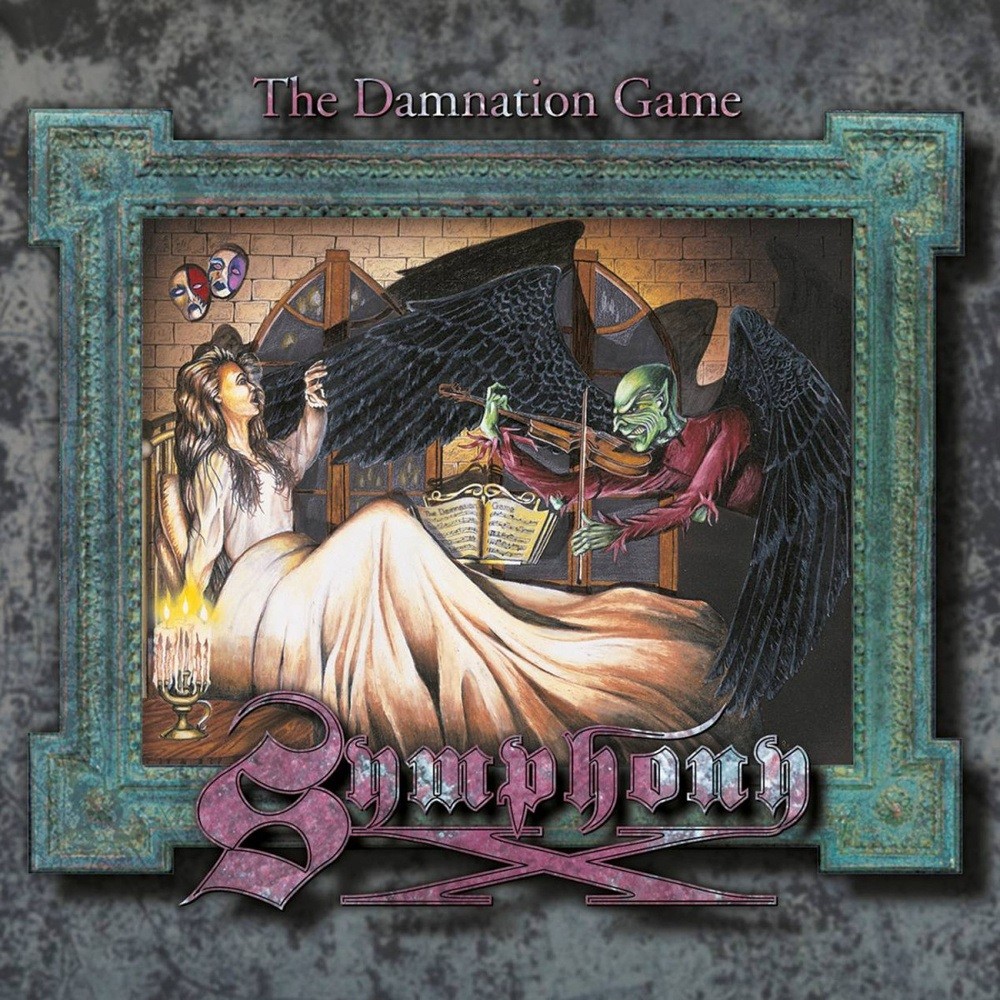Symphony X - The Damnation Game (1995)Release ID: 2564

Symphony X are back with their second album and a sound that will quickly distinguish them as one of the top prog metal bands in the world.
The differences between this and their self-titled debut are noticeable immediately. Besides the addition of powerhouse vocalist Russell Allen, who's incredible voice can easily switch between both melodic and aggressive styles, the production has been vastly improved and the songwriting is a lot more confident and refined.
The songs on 'The Damnation Game' flow so much fluidly than before. Michael Romeo's intense riffs and exotic solos are much more tasteful, and Michael Pinella's keyboards never sounded this beautiful on 'Symphony X'. While this is far from the bands most ambitious work, it's still a solid blueprint which the New Jersey quintet would build upon with future releases.
Featuring highlights such as 'The Edge of Forever', 'A Winter's Dream', 'The Haunting' and the title track, the reason this only gets a three-star rating is because, despite being a really good record, honestly, it just pales in comparison to what's to come. Such is the strength of the bands later output that I find myself very rarely listening to this one. Still, if you're a fan of Symphony X, then this is definitely an album worth owning!
Symphony X are, in my opinion, quite possibly the second greatest metal band on Earth, placed right behind Metallica. They mastered the neoclassical sound multiple times and flow beautifully with the balance between prog, power and symphonic that comes with the genre. However, they certainly didn't start out that way. Their debut was an underproduced and generic piece of cheese with a few decent moments. They had a lot of practice to do. Thankfully, The Damnation Game gives us a good look at the fruits of their labor. While they were still young and clearly inexperienced, there were major improvements in the poetry of the lyrics, the production values, the layout of the songs and (most importantly for a neoclassical metal album), the classical solos. They sounded like the had a good idea of what they wanted to achieve, even if they were still closer towards the generic side. Maybe this is a more noticeable problem when you compare it to their next album, The Divine Wings of Tragedy. But doing so is a good move, so you can more clearly see how they were lacking in the mastery of epic production and delivery, as well as the complexity of the classical solos that made DWoT so brilliant. So while this is certainly not one of their best albums, historically, it's still relevant so the world can see what it took for them to become metal masters.
Release info
Sub-Genres
|
Progressive Metal (conventional) Voted For: 0 | Against: 0 |
|
|
Neoclassical Metal (conventional) Voted For: 0 | Against: 0 |


